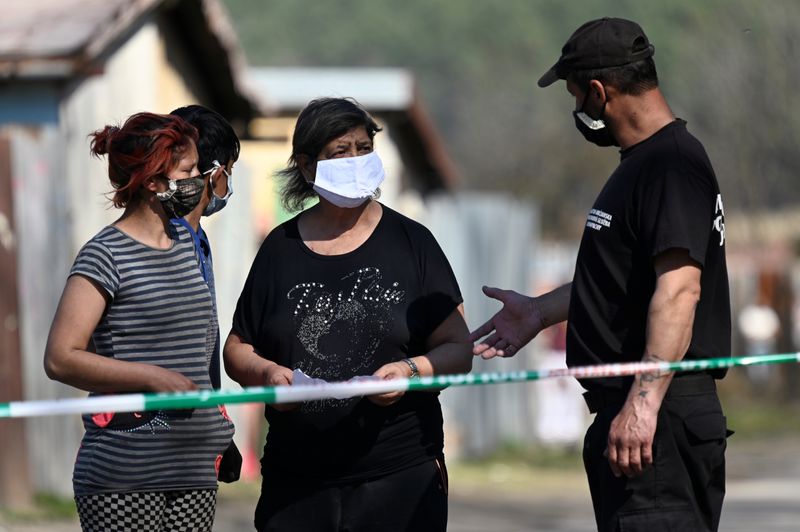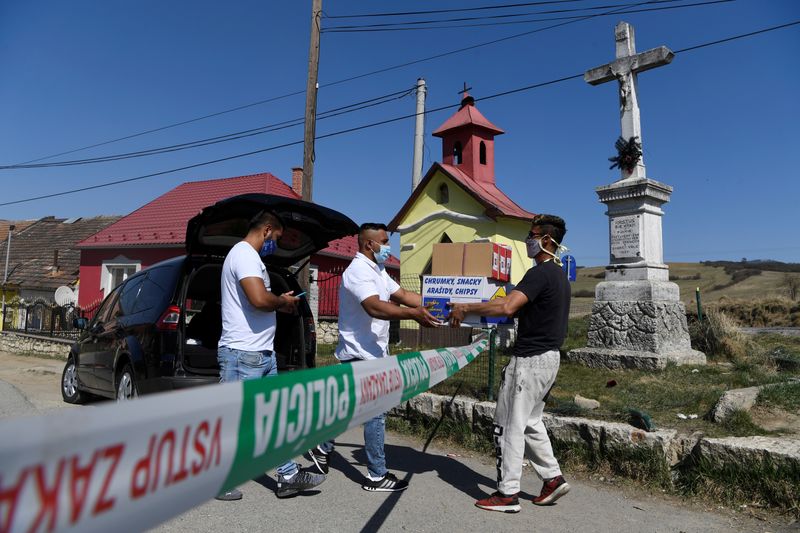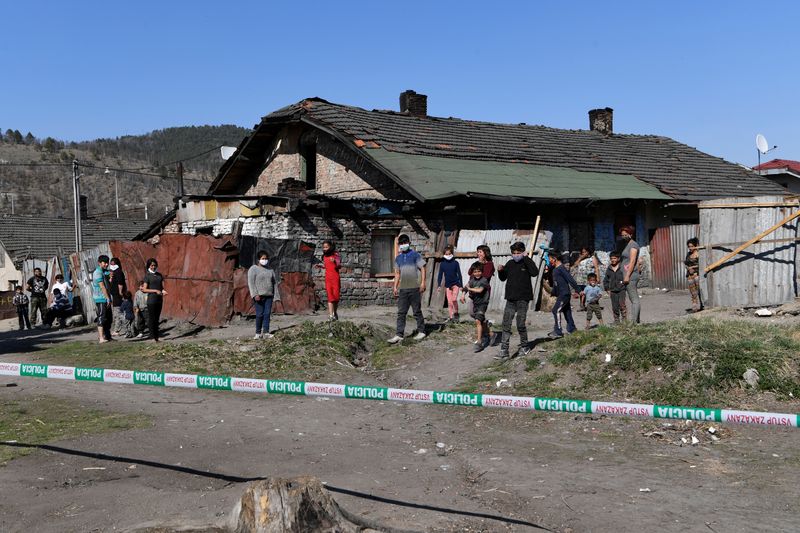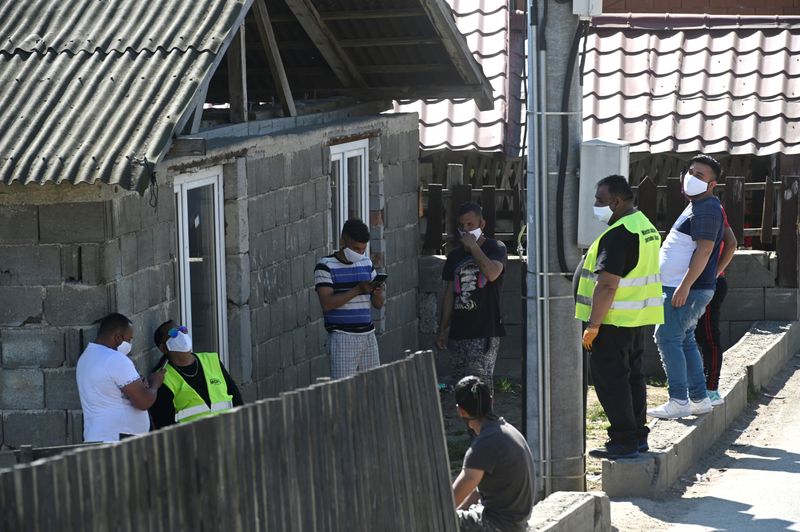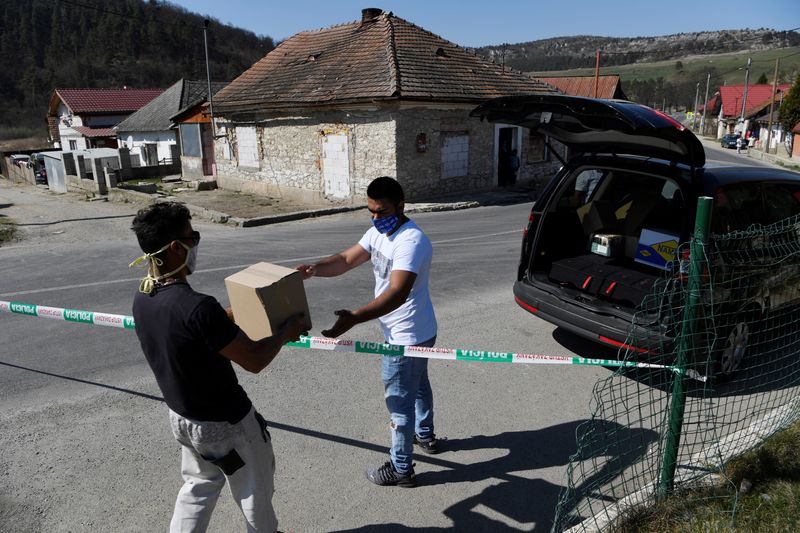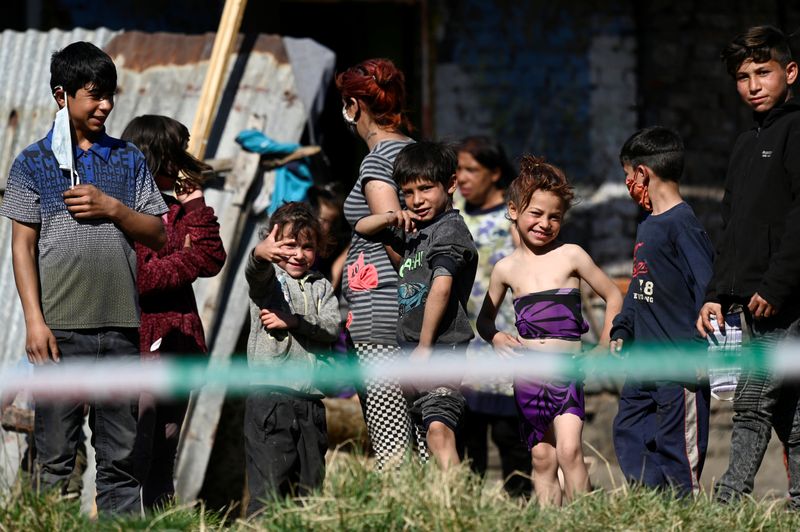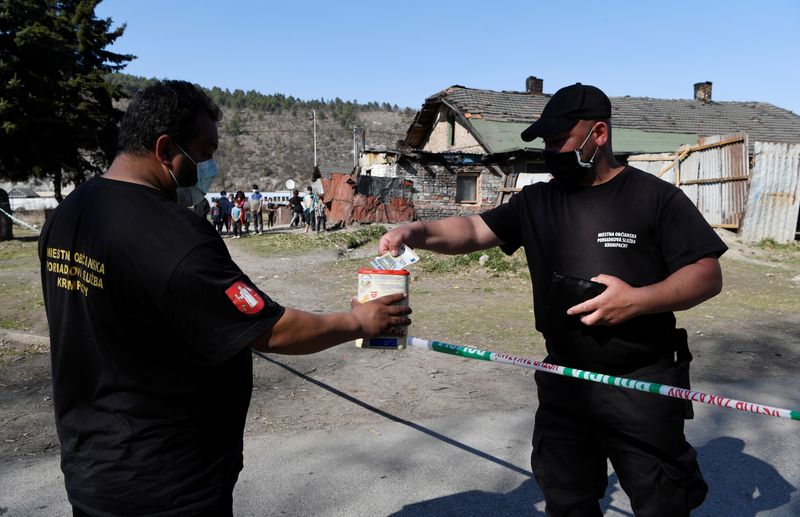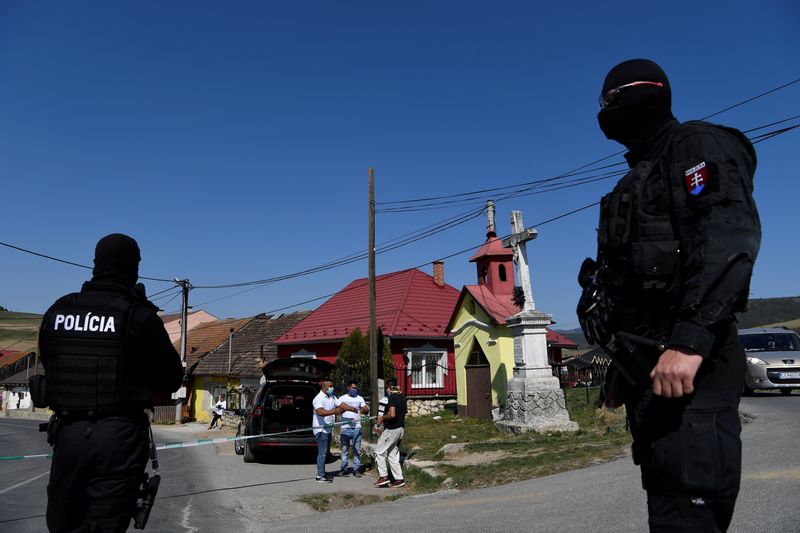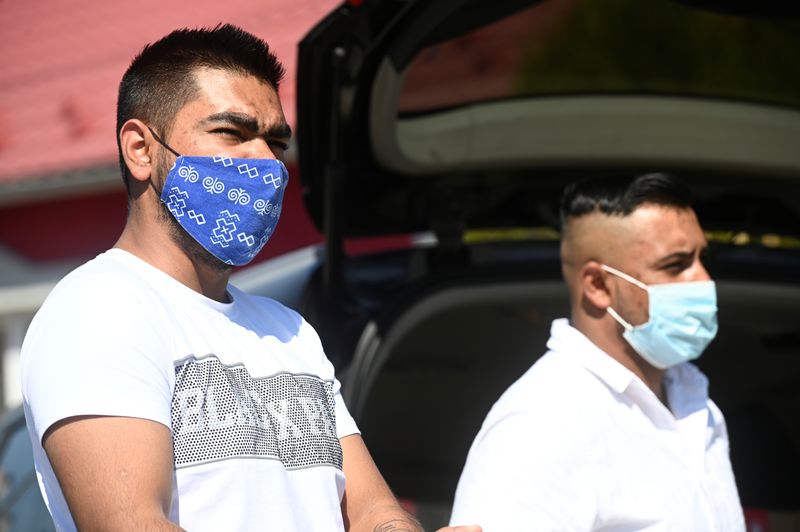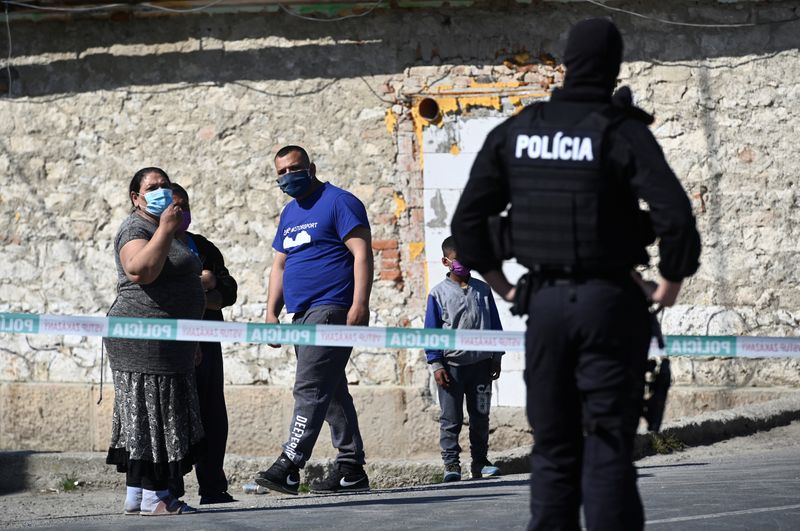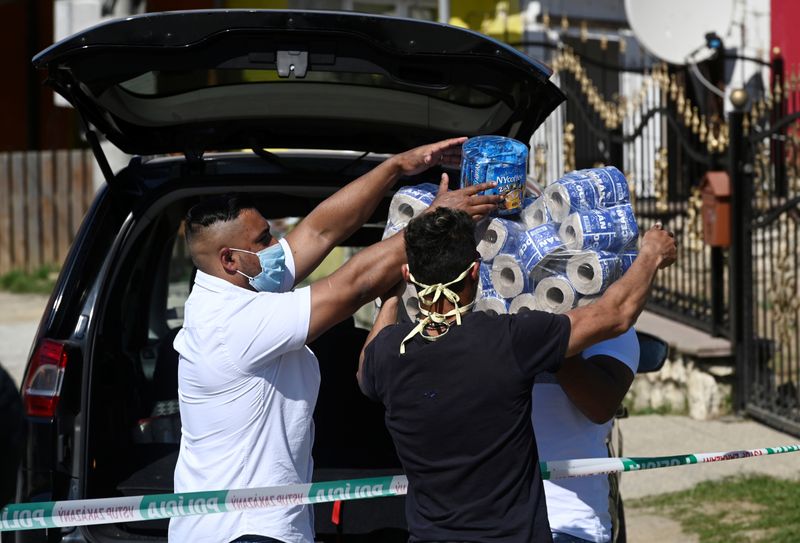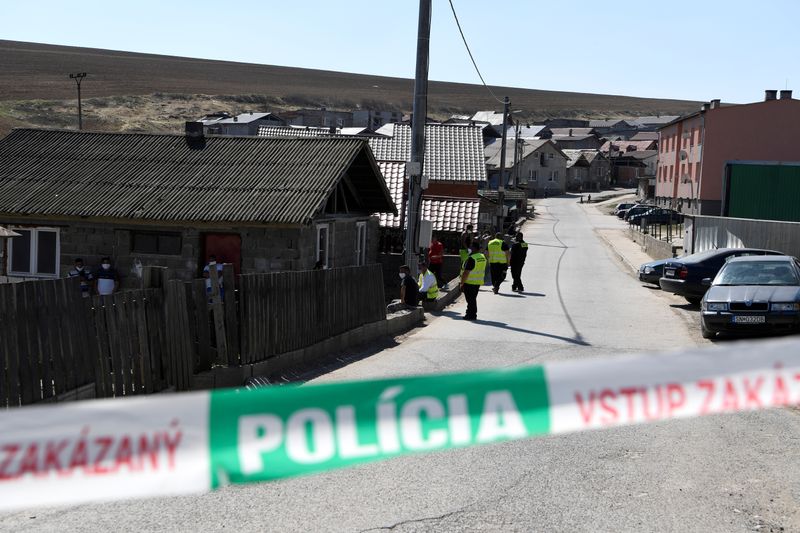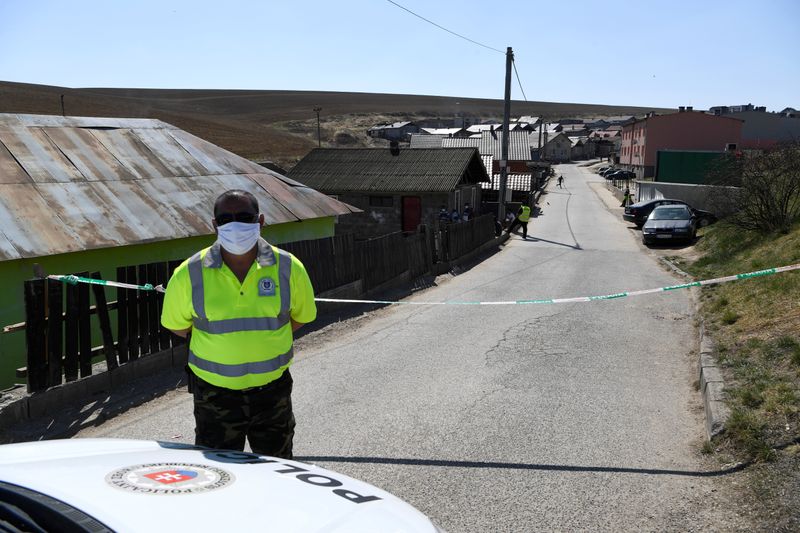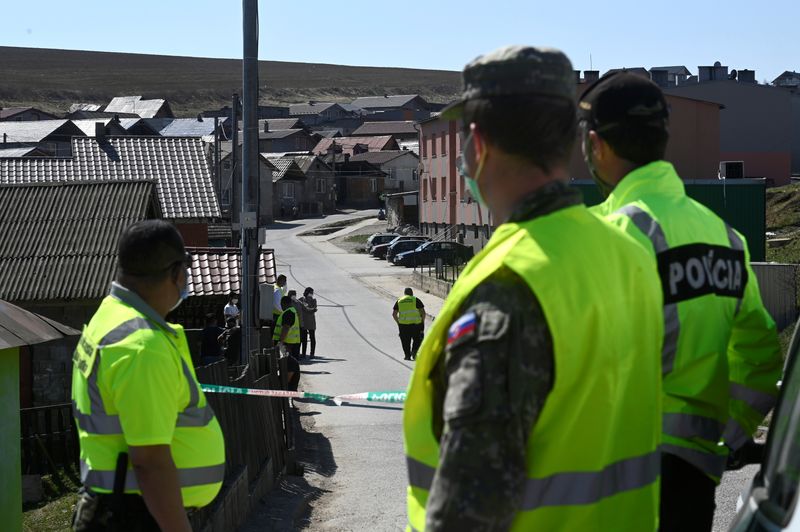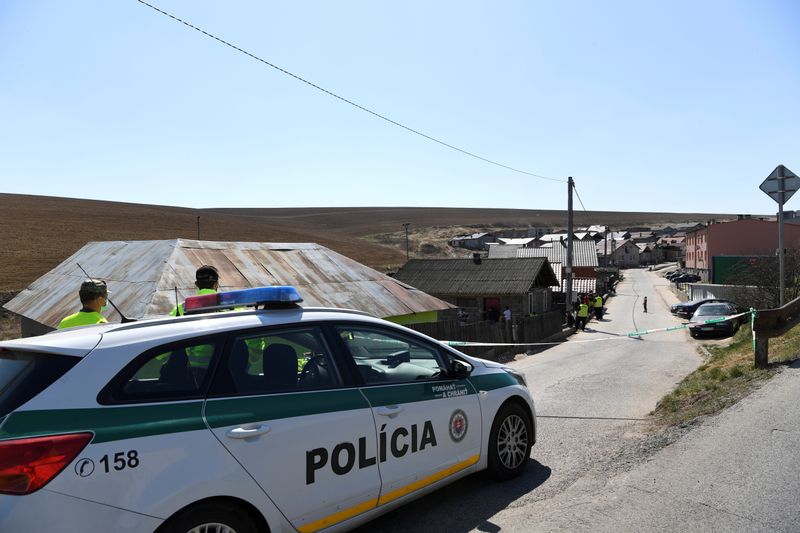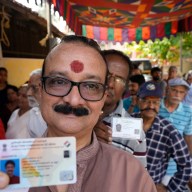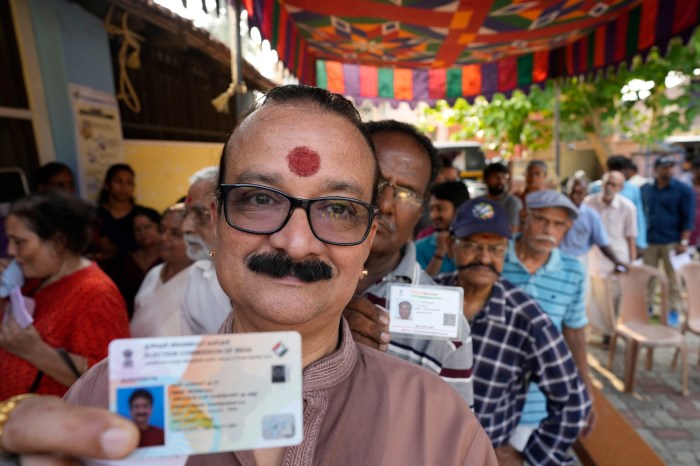BRATISLAVA (Reuters) – Slovakia has closed off several Roma settlements in the eastern part of the country after reports of a cluster of coronavirus cases in five of them, highlighting difficulties faced by Europe’s largest ethnic minority during the pandemic.
Roma communities across eastern Europe are impoverished, plagued by high unemployment and historically the target of discrimination, and the coronavirus outbreak has many feeling more vulnerable.
In Bulgaria, some Roma have complained of being locked in ghettos because of strict curbs on movement. In Hungary, Roma leaders said this week the pandemic threatened their already precarious living conditions.
Slovakian Prime Minister Igor Matovic announced on Wednesday that at least 31 people had tested positive for the coronavirus. The Slovak authorities said they would ensure food deliveries and access to healthcare in the enclaves, despite restrictions on movement.
“The measure came into force at midnight. It applies to five locations in two villages and one town,” said Renata Hudakova from the regional public health authority in Spisska Nova Ves.
Slovakia started widespread testing in Roma settlements on April 3 amid concerns crowded living conditions and inadequate hygiene could accelerate infections.
“It is not a hostile act. We want to protect people who are in quarantine as well as those who were in contact with them,” Matovic told the media in the town of Krompachy, where three of the closed settlements are located.
Andrea Najvirtova, head of the rights group People in Need, expressed concern over deepening poverty in the Roma areas as a result of the quarantine as well as nationwide curbs on public life.
“They live in poverty and many have lost their sources of income, such as seasonal work, and their children had free meals in schools, which are now closed. The measures should take this into account,” she said.
Slovakia has identified more than 1,000 locations with 260,000 inhabitants it considered at high risk because of high density of population and poor living conditions.
Officials say that hundreds of Roma returning from western Europe in recent weeks may have arrived infected with the novel coronavirus.
“(It) will spread much faster in the Roma communities,” said Peter Pollak, member of the European Parliament from Matovic’s Ordinary People (OLANO) party and of Roma origin.
Slovakia has reported 682 cases of the coronavirus and two deaths, with 101 new cases reported on Tuesday.
Slovakia has already banned international passenger transport, closed schools and most shops and banned all public events. The government also restricted free movement of people as of Wednesday until next Monday, to curb internal travel during Easter holidays in the majority-Catholic country.
(Reporting by Tomas Mrva, editing by Larry Kin)

